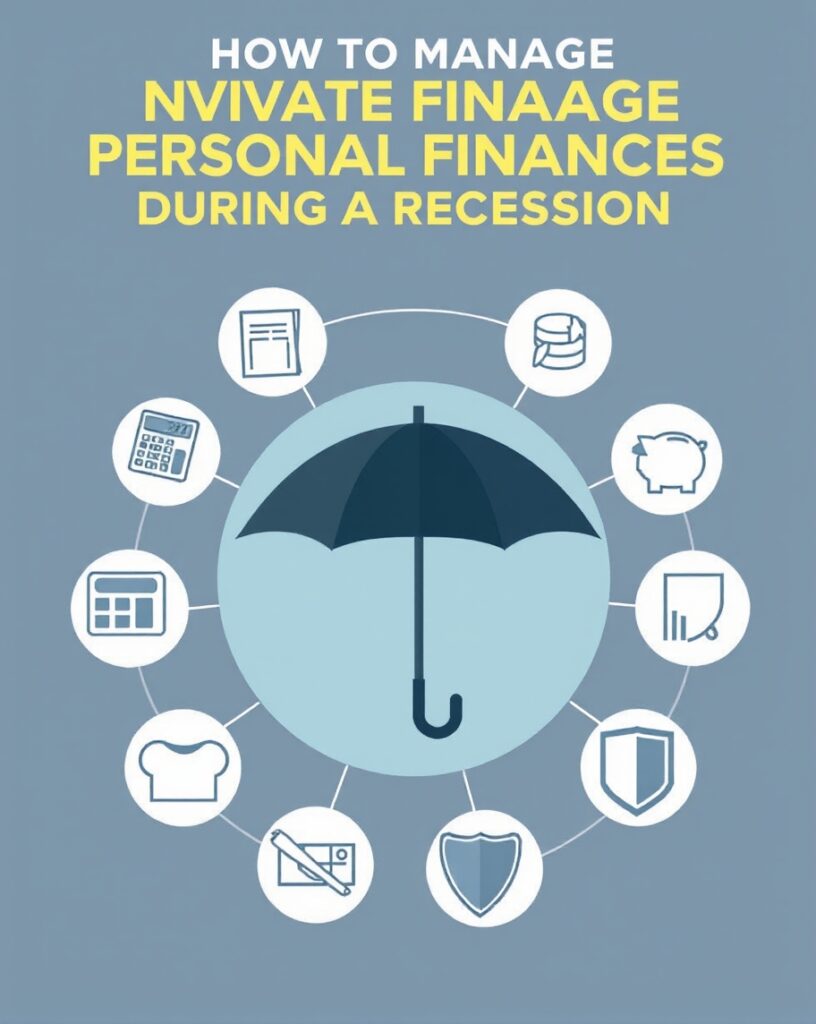Recessions can create significant financial stress, impacting job security, investment values, and overall economic stability. However, with careful planning and proactive strategies, you can navigate these challenging times and maintain your financial health. This blog will provide essential tips on how to manage your personal finances during a recession, ensuring you stay secure and prepared for whatever comes your way.
1. Assess Your Financial Situation
The first step in managing your finances during a recession is to conduct a thorough assessment of your current financial situation.
Key Actions:
- Calculate Your Net Worth: List your assets (savings, investments, property) and liabilities (debts, loans) to understand your net worth.
- Review Income Sources: Identify your primary income sources and any secondary streams. Consider the stability of each source in a recession.
2. Create a Budget and Stick to It
During a recession, having a clear budget is crucial for controlling your spending and prioritizing essential expenses.
Budgeting Tips:
- Categorize Your Expenses: Divide your expenses into essential (housing, food, healthcare) and non-essential (entertainment, dining out). Focus on minimizing non-essential spending.
- Use Budgeting Tools: Consider using budgeting apps or spreadsheets to track your expenses and stay accountable.
3. Build an Emergency Fund
An emergency fund serves as a financial cushion during tough times, providing you with the security needed to handle unexpected expenses.
How to Build Your Fund:
- Set a Savings Goal: Aim to save three to six months’ worth of living expenses.
- Automate Savings: Set up automatic transfers to your savings account to ensure consistent contributions.
4. Reduce Debt
Managing and reducing debt should be a top priority during a recession. High levels of debt can create financial strain, especially if income becomes uncertain.
Debt Reduction Strategies:
- Prioritize High-Interest Debt: Focus on paying off high-interest debts first, such as credit card balances.
- Consider Debt Consolidation: Explore options for consolidating debts to reduce interest rates and simplify payments.
5. Diversify Income Streams
Relying on a single source of income can be risky during a recession. Diversifying your income can provide financial stability.
Ways to Diversify Income:
- Freelancing or Part-Time Work: Explore freelance opportunities or part-time jobs that align with your skills and interests.
- Passive Income: Consider investing in assets that generate passive income, such as rental properties or dividend-paying stocks.
6. Cut Unnecessary Expenses
In times of economic uncertainty, it’s crucial to evaluate and eliminate unnecessary expenses.
Expense-Cutting Tips:
- Review Subscriptions: Cancel any subscriptions or memberships that you don’t frequently use.
- Cook at Home: Reduce dining out by cooking meals at home, which can significantly cut food expenses.
7. Stay Informed About Financial Assistance
During a recession, various financial assistance programs may be available to help individuals and families in need.
Resources to Explore:
- Government Programs: Research government programs offering unemployment benefits, food assistance, or housing support.
- Local Nonprofits: Many local organizations provide financial counseling, food banks, and other resources during economic hardship.
8. Invest Wisely
While investing during a recession can be daunting, it can also present opportunities for long-term growth.
Investment Strategies:
- Focus on Fundamentals: Look for companies with strong fundamentals, including solid balance sheets and consistent cash flow.
- Consider Defensive Stocks: Defensive stocks, such as utilities and consumer staples, tend to perform better during economic downturns.
9. Maintain a Positive Mindset
Managing personal finances during a recession can be stressful, but maintaining a positive mindset is essential for navigating these challenges.
Mindset Strategies:
- Practice Gratitude: Focus on what you have rather than what you lack. This can help reduce stress and improve your overall well-being.
- Set Realistic Goals: Set achievable financial goals to provide direction and motivation during tough times.

